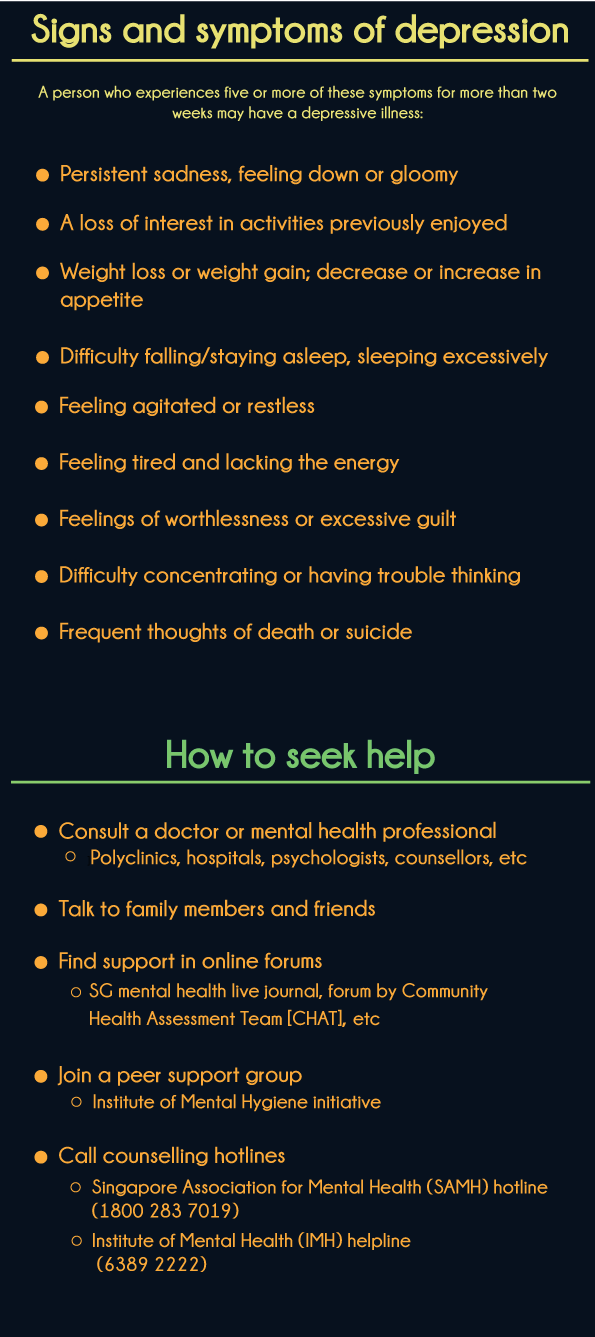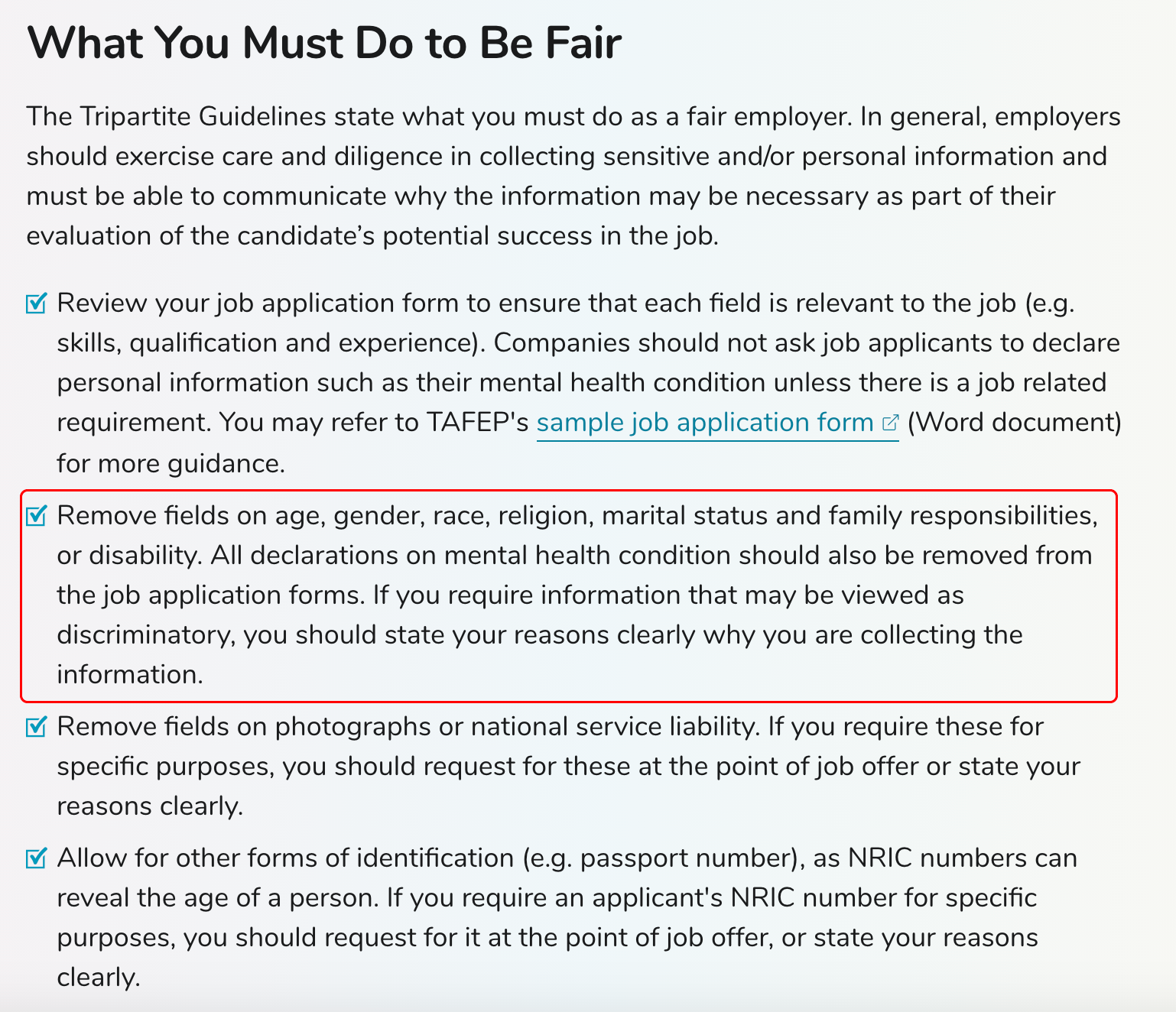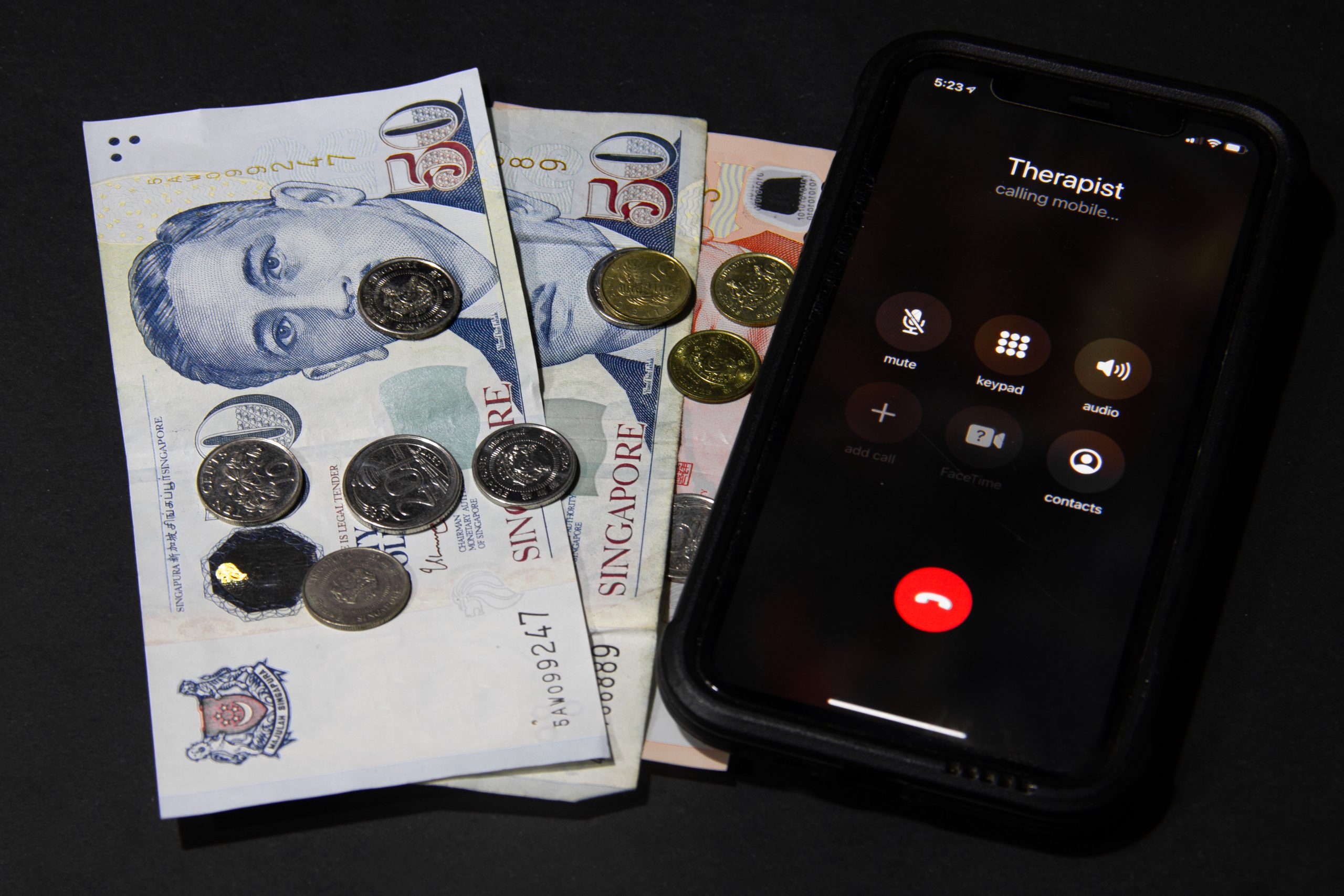The Cost of Mental Health
Singapore has unequivocally been improving its infrastructure to support citizens who want to seek help for their mental health, but how effective have they been? Jamie Mah and Shajahan Mohd investigate.
Youths contemplate on seeking help for mental health. Photo by Shajahan Mohd.
BY
Jamie Mah
Editor
Hype Issue #53
Shajahan Mohd
Editorial Admin
Hype Issue #53
Published on
Aug 11, 2021
What is mental health?
In order to understand the issue of mental health in Singapore, we must first define what mental health is. According to the Institute of Mental Health (IMH), “mental health is about how we think, feel and act as we cope with our lives. It also helps determine how we handle stress, relate to others and make choices.”
Having poor mental health does not necessarily mean that one has a mental illness. As quoted from IMH, “good mental health isn’t just the absence of mental health problems… Rather than the absence of mental illness, mental and emotional health refers to the presence of positive characteristics.”
The causes of mental illnesses and poor mental health range far and wide, but the more common reasons include stress, abuse, trauma, grief, and dysfunctional parenting or families.
In retrospect, Singapore has definitely come a long way in regards to discussing topics like mental health.
What was once seen as a taboo topic is now being widely addressed by important stakeholders in the country, with many organisations spearheading mental health care initiatives.
This was especially so when Covid-19 first hit Singapore and when it started to have a toll on the mental health of many Singaporeans. Learn more from our story on how Covid-19 impacted the mental health of youths and why it is prevalent in Singapore.
The government understood this issue and formed a new inter-agency task force to manage the mental health needs of Singaporeans.
Another initiative, that was not a consequential result of Covid-19, would include ‘The President’s Challenge’ Initiative. The initiative is a community effort that allowed over $13 million to be raised for more than 60 agencies. This was to support the agencies in helping those with mental health issues.
However, despite the plethora of measures put in place by Singapore, it is definitely still not enough when compared to other developed countries.
For example, according to the Ministry of Health in 2019, the ratio of psychiatrists-to-population in Singapore per 100K people is 4.4 and the ratio of psychologists-to-population is 8.3.
However, according to a journal done by the Department of Psychological Medicine from the Taiwanese Journal of Psychiatry, countries like the USA, UK and Australia have a psychiatrists-to-population ratio of 13.7, 11.0, and 14.0 respectively.

Infographic by Shajahan Bin Mohamed Haniffa
Source: Institute of Mental Health (IMH) and Singapore Association of Mental Health (SAMH)
How prevalent is mental illness in Singapore?
According to the second Singapore Mental Health Study (SMHS) conducted by IMH, Ministry of Health (MOH), and Nanyang Technological University (NTU), it was found that one in seven Singaporeans have experienced a mental disorder in their lifetime. It was also found that as of 2019, according to Homage, the top five mental disorders are depression, anxiety, schizophrenia, bipolar disorder and substance abuse.
With mental health gaining more awareness in the recent decade, more are also seeking professional help for their mental health. As quoted from a CNA article, “according to MOH, from 2017 to 2019, an average of 12,600 patients aged 15 to 34 years sought treatment for mental health conditions at public hospitals each year.”
Statistics by the Samaritians of Singapore (SOS) show that youths aged between 18 to 34 years old were also found to be the most vulnerable group for mental disorders, and suicide continues to be the leading cause for death for those between the ages of 10 to 29 years old.
To some, it might not make sense why those suffering from mental disorders do not seek help from professionals. If one had a physical illness, the next logical step would be to see a doctor. However, it is not so easy to tell when someone is suffering from mental illness as it cannot be “seen”, in the literal sense of the word.
“I realised how much I depend on how others perceive me to determine my self-worth, and that without it, I didn’t value myself. I immediately realised that this was an issue, and I searched for resources to help me debunk this way of thinking,” says Nancy Tan, 20 (not her real name and age), who sought therapy in Singapore Polyclinic .
Some might turn to the Internet or even mental health awareness social media pages for help and self-diagnose themselves with conditions that they feel they have.
Self-diagnosis presents within itself some dangers, as some may incorrectly diagnose themselves with mental illnesses or conditions that they do not actually have.
Seeking awareness and knowledge on the matter from social media is of course, of no harm, but it is highly recommended to seek professional help should you feel that you are suffering from any mental illnesses.
Effectiveness of efforts
Singapore clearly wishes to help Singaporeans with their mental health through its various initiatives, but how effective have they really been?
Stigma
It’s quite difficult for the initiatives to be extremely effective when the issue is not the lack of initiatives but the stigma that comes from seeking help for mental health.
Tian Chong, 16 (not her real name and age), a student in Singapore, first sought therapy when she became very stressed with school. As a person that tends to suppress her feelings a lot, she found it difficult to let go.
“In Singapore… therapy is still not a common resort. Furthermore, [with] me being a student, it is even more unusual. I was worried people would view me as I was sick or scared to be around me,” says Tian as she explains how she was worried about the stigma of seeking therapy as well as how she overcame it. “Then I realised that people won’t really know I go to therapy unless I tell them and people I love would be understanding and still accept me.”
Some may think Tian is exaggerating, but according to a study done by the Research Division from the Institute of Mental Health (IMH) on the stigma among Singaporean youth, nearly half of the participants associated pejorative words and phrases such as ‘mental illness’.
Another study done by BMC Psychiatry in 2020 also revealed that there was a trend in the number of people expressing fear towards people with mental illnesses.
“I think there is such a heavy stigma associated [with] people struggling with mental health especially in Singapore … when really we should accept it as the norm … and not be resistant to it,” says Nancy.
Many may also tend to stray away from seeing help from public sectors because of the misconception that if they do seek help from therapists, their case information may affect any future opportunities that they receive.
“In terms of the code of ethics, we must still maintain a high level of confidentiality for the clients,” said Mr Carlin Lee, 39, one of the seven counsellors at Ngee Ann Polytechnic Counselling & Care.
As a therapist from the public sector himself, Mr Lee does agree that the case details will be recorded. However, he explains how these case details are so that the case can be followed up by another therapist in the future.
“For example, if a student comes and sees me, the record doesn’t go to their school, it doesn’t go to their teachers, unless they give permission,” explained Mr Lee.
Additionally, he mentioned how “after a few years, the information will be purged, which is a normal process in terms of dealing with confidential information”.
Many may still have the fear of seeking help because they are afraid it would affect their work-life and job opportunities. This fear may have been a result of past guidelines where workers had to declare any mental illnesses or conditions that they may have during their application process.
However, this is no longer the case, according to the revised guidelines by Tripartite Alliance for Fair and Progressive Employment Practices (TAFEP) in 2020.

Job candidates are no longer judged by unfair conditions such as their mental health. Photo taken from TAFEP website.
Despite the myriad of adverse effects the pandemic has had on many, one of the benefits is that it has fortunately allowed for more people to feel more courageous in seeking help for their mental health.
“Covid-19 pretty much forced people to acknowledge that we need to take care of our mental health, rather than reducing that stigma,” Mr Lee said as he emphasised how Covid-19 did not necessarily reduce the stigma of mental health but it did raise enough awareness for more people to seek help.
The Cost
Another reason that might deter people is the cost of therapy itself. Prices typically range from $130 to $180 per session, or per hour in some places.

The cost of mental health treatment is rising in Singapore. Photo by Shajahan Mohd.
Therapy is a pricey solution, especially when it does not provide the “instant fix” that some might expect of it.
“I expected to be able to fix all my problems. I expected to gain new insight and perspective, that I’d feel settled, accept my situation and move on. That did happen for the most part but it only solved one of my problems,” says Tian.
Of course, the prices between private and public therapy differ greatly, and it all boils down to what you are willing to pay for. With private therapy, you are paying for their time and service, and how much you are willing to pay for is exactly what you will be receiving in return.
When it comes to the public sector of therapists, many seek help from them due to the lower costs, and so, sessions are few and far between.
“Because [public sector therapy] is cheaper or free, people tend to use public sector services as well. That means that more people are going, so that means that the workload is higher as well,” said Mr Lee.
Adding on, due to the high traffic, public sector therapists may not be able to provide each patient with the utmost empathy and care they need, hence, there is a limit placed on how many patients they can see at a time such that the patients they are able to see can receive the help and care that they need.
Despite this, mental health is not something that can simply be put on the back burner until your next appointment, thus the public sector may not be a viable option for most.
Possible solutions
The issue at hand is the cost and accessibility of mental health care, be it from the public or private sector, and the stigma associated with seeking help from therapists.
This stigma causes people to be reluctant to seek help or treatment and could in turn, potentially exacerbate poor mental health. The fight against the stigma requires long-term, consistent effort from both the public and the government.
On the plus side, the government seems to understand the need to normalise and destigmatise mental health and has launched more mental wellness initiatives, especially in schools.
The Ministry of Education (MOE) will be refreshing the Character and Citizenship Education (CCE) curriculum for 2021, and will be introducing mental wellness as part of the new CCE curriculum in secondary schools in order to educate students on how to identify symptoms of poor mental health and how to practice empathy towards others.
Efforts must also be made by the public to practice empathy towards those who are courageous enough to seek help instead of judging or questioning them.
As for the cost, the obvious way to get around that issue is by seeking help from therapists from the public sector. However, due to their workload, they may not be able to provide the time and service one might receive from those in the private sector.
“That’s why, actually, in Ngee Ann [Polytechnic], we try to reduce the number of sessions that a counsellor can see in the day,” says Mr Lee as he explains how reducing the number of available sessions in the public sector can help promote greater empathy by therapists in the public sector.
Conclusion
“[Mental health is] a battle in your mind that you go through everyday, and on top of that, people just berate it so easily, brushing it off as something that is just in your head when truly, it’s unlearning the messages that people told you that you eventually believed to be true,” says Nancy. “It gets difficult sometimes: to be strong amidst all [of] this.”With how expensive and inaccessible therapy from either the private or public can be, it is not surprising that many do not seek professional help when they begin to struggle with their mental health.
It can be argued that more can be done to provide financial aid for those who require a therapist but are unable to afford it, or perhaps to aid public sector therapists. Whether or not more actions are put into place for making mental health therapy more accessible in Singapore, it is clear that something must be done to tackle this issue.
How far would you be willing to go for your mental health?

… [Trackback]
[…] Information on that Topic: hypesingapore.com/index.php/2021/08/10/the-cost-of-mental-health/ […]
… [Trackback]
[…] Here you can find 21622 additional Info on that Topic: hypesingapore.com/index.php/2021/08/10/the-cost-of-mental-health/ […]
… [Trackback]
[…] Here you can find 97392 additional Info to that Topic: hypesingapore.com/index.php/2021/08/10/the-cost-of-mental-health/ […]
… [Trackback]
[…] Read More Info here on that Topic: hypesingapore.com/index.php/2021/08/10/the-cost-of-mental-health/ […]
… [Trackback]
[…] Info on that Topic: hypesingapore.com/index.php/2021/08/10/the-cost-of-mental-health/ […]
… [Trackback]
[…] Here you can find 57176 more Information to that Topic: hypesingapore.com/index.php/2021/08/10/the-cost-of-mental-health/ […]
… [Trackback]
[…] Information to that Topic: hypesingapore.com/index.php/2021/08/10/the-cost-of-mental-health/ […]
… [Trackback]
[…] Find More Info here on that Topic: hypesingapore.com/index.php/2021/08/10/the-cost-of-mental-health/ […]
… [Trackback]
[…] Read More Info here to that Topic: hypesingapore.com/index.php/2021/08/10/the-cost-of-mental-health/ […]
… [Trackback]
[…] Find More Information here to that Topic: hypesingapore.com/index.php/2021/08/10/the-cost-of-mental-health/ […]
… [Trackback]
[…] Find More Information here on that Topic: hypesingapore.com/index.php/2021/08/10/the-cost-of-mental-health/ […]
relaxing
… [Trackback]
[…] Here you will find 6101 additional Info on that Topic: hypesingapore.com/index.php/2021/08/10/the-cost-of-mental-health/ […]
… [Trackback]
[…] Read More on that Topic: hypesingapore.com/index.php/2021/08/10/the-cost-of-mental-health/ […]
… [Trackback]
[…] Find More on that Topic: hypesingapore.com/index.php/2021/08/10/the-cost-of-mental-health/ […]
… [Trackback]
[…] Read More Info here to that Topic: hypesingapore.com/index.php/2021/08/10/the-cost-of-mental-health/ […]
… [Trackback]
[…] Read More here to that Topic: hypesingapore.com/index.php/2021/08/10/the-cost-of-mental-health/ […]
… [Trackback]
[…] Info on that Topic: hypesingapore.com/index.php/2021/08/10/the-cost-of-mental-health/ […]
… [Trackback]
[…] Information to that Topic: hypesingapore.com/index.php/2021/08/10/the-cost-of-mental-health/ […]
… [Trackback]
[…] Read More here to that Topic: hypesingapore.com/index.php/2021/08/10/the-cost-of-mental-health/ […]
… [Trackback]
[…] There you will find 84925 additional Info on that Topic: hypesingapore.com/index.php/2021/08/10/the-cost-of-mental-health/ […]
You have a unique talent for bringing topics to life. This article was both informative and captivating.
… [Trackback]
[…] Find More Info here to that Topic: hypesingapore.com/index.php/2021/08/10/the-cost-of-mental-health/ […]
… [Trackback]
[…] Info to that Topic: hypesingapore.com/index.php/2021/08/10/the-cost-of-mental-health/ […]
… [Trackback]
[…] Read More here to that Topic: hypesingapore.com/index.php/2021/08/10/the-cost-of-mental-health/ […]
… [Trackback]
[…] Information on that Topic: hypesingapore.com/index.php/2021/08/10/the-cost-of-mental-health/ […]
… [Trackback]
[…] Info to that Topic: hypesingapore.com/index.php/2021/08/10/the-cost-of-mental-health/ […]
… [Trackback]
[…] Find More on to that Topic: hypesingapore.com/index.php/2021/08/10/the-cost-of-mental-health/ […]
… [Trackback]
[…] Find More on that Topic: hypesingapore.com/index.php/2021/08/10/the-cost-of-mental-health/ […]
I don’t think the title of your article matches the content lol. Just kidding, mainly because I had some doubts after reading the article.
Breeze Pro Flavors provide a premium vaping experience with a variety of bold, vibrant tastes. Enjoy smooth, consistent performance, perfect for those seeking rich and satisfying flavors in every puff.
… [Trackback]
[…] Find More to that Topic: hypesingapore.com/index.php/2021/08/10/the-cost-of-mental-health/ […]
… [Trackback]
[…] Read More to that Topic: hypesingapore.com/index.php/2021/08/10/the-cost-of-mental-health/ […]
… [Trackback]
[…] Read More Information here to that Topic: hypesingapore.com/index.php/2021/08/10/the-cost-of-mental-health/ […]
… [Trackback]
[…] Find More here on that Topic: hypesingapore.com/index.php/2021/08/10/the-cost-of-mental-health/ […]
Your article helped me a lot, is there any more related content? Thanks!
Thanks for sharing. I read many of your blog posts, cool, your blog is very good.
Thank you for your sharing. I am worried that I lack creative ideas. It is your article that makes me full of hope. Thank you. But, I have a question, can you help me?
Thank you for your sharing. I am worried that I lack creative ideas. It is your article that makes me full of hope. Thank you. But, I have a question, can you help me?
Thank you for your sharing. I am worried that I lack creative ideas. It is your article that makes me full of hope. Thank you. But, I have a question, can you help me?
Your article helped me a lot, is there any more related content? Thanks! https://www.binance.info/kz/join?ref=UT2YTZSU